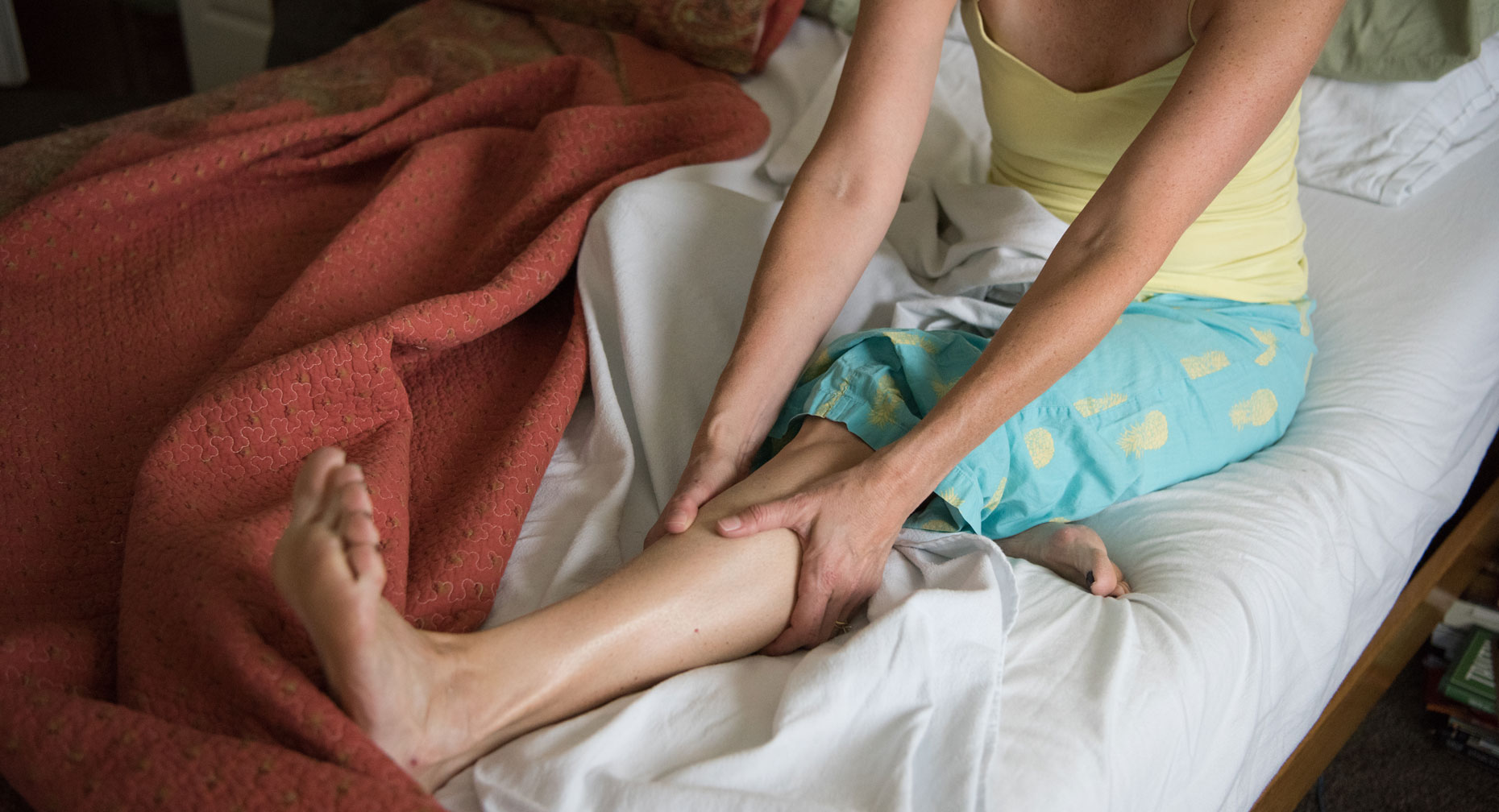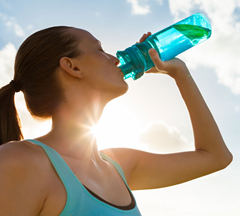8 Tips to Kick Muscle Cramps

Find Your Perfect Match
Answer a few questions and we'll provide you with a list of primary care providers that best fit your needs.
Ever been jolted awake by a charley horse — that sudden, intense pain that comes from a muscle cramp? Any muscle can tighten in an excruciating spasm, but those in the calf, the back of the thigh (hamstrings) and front of the thigh (quadriceps) are most commonly affected. Cramps can last anywhere from a few seconds to 15 minutes, and may recur several times before going away.
A muscle cramp may be telling you that you're not getting the nutrients your body needs to function properly.
What Causes Cramping?
Just about everyone will experience a muscle cramp at some point. "People of all ages can experience muscle spasms," says Dr. Joshua Ordway. They can strike any time — when you’re playing tennis, swimming, walking or even snoozing, he says. And some people are simply more likely to get them. For example, older adults are more prone to muscle cramps due to normal muscle loss that comes with aging. While the cause isn't always known, muscle cramps can be triggered by:
- Overusing your muscles, usually during exercise
- Muscle injuries and dehydration (excessive loss of fluids in the body)
- Remaining in the same position for a long time
- Low levels of some minerals, including calcium, potassium, sodium and magnesium
- Inadequate blood supply to your legs and feet, which can cause cramping when you exercise, walk or are physically active
Sometimes a medical condition can trigger cramps including:
- Pregnancy
- Spinal nerve compression
- Alcoholism
- Kidney failure
- Hypothyroidism (low thyroid gland function)
- Certain medicines
- Abnormalities of the metabolism
What To Do If Your Muscle Cramps
If you’re experiencing a muscle cramp or spasm, here’s what to do, suggests Dr. Ordway:
Click play to watch the video or read video transcript.
How to Prevent Cramping During and After Exercise

Dr. Ordway advises trying these tips to ease or stop muscle cramps before they start:
- S-t-r-e-t-c-h: Warm up and stretch before exercising or playing sports. Otherwise, you may risk muscle strain and injury. If spasms do occur during your workout, stop immediately and gently massage and stretch the affected area. Apply heat when it first occurs, and ice after it passes. An anti-inflammatory medicine like ibuprofen can help.
- Stay in shape: When you work toward better overall fitness, and do flexibility exercises before and after your workout, you'll help keep cramps away.
- Take it slow: Make gradual changes in the type and intensity of exercise to minimize muscle fatigue and potential cramps.
- Cut the caffeine: Scale back on foods and drinks that contain caffeine, like coffee and chocolate.
- Grab your water bottle: Drink enough liquid to avoid dehydration. Your body loses more water when you’re active, so ramp up your intake when you exercise.
- Eat your greens — and oranges: A muscle cramp may be telling you that you're not getting the nutrients your body needs to function properly. Try upping your intake of healthy fruits and vegetables. If that doesn't do the trick, ask your doctor if you need vitamin supplements.
- Check your meds: Some medications can deplete the body of magnesium or potassium. Talk with your health care provider if you are taking maintenance medication or experiencing muscle cramps.
- Talk to your doc: Sometimes a muscle spasm should be checked out by a medical professional. If you experience severe pain or weakness, or it doesn't stop and spreads to other parts of your body, call your health care provider.
Find Your Perfect Match
Answer a few questions and we'll provide you with a list of primary care providers that best fit your needs.
Source: American Academy of Orthopaedic Surgeons (AAOS); Healthline; Joshua Ordway, MD,Franklin Family Practice





